Since September 2020, I have been employed at the GEOMAR Institute in Kiel to set up public relations for three ocean research projects, EVAR, REEBUS and CUSCO. The first project is primarily based at the Institute for Baltic Sea Research Warnemünde, the last two primarily at GEOMAR Helmholtz Centre for Ocean Research Kiel. Before starting work, I had one or two stereotypes about people in science in my head. But since taking up the job, my view of science and scientists has been changing more and more.
On one of my first days at work, I sat at the lunch table with my new colleagues from GEOMAR. It was then that I noticed something surprising: While we had just been arguing about the data situation for oceanic research experiments, suddenly a much more important question was at the heart of the heated discussion – the question of the right noodle.
The right noodle? I was astonished. Are there really “right” noodles? Have I been completely uninformed up to now and simply grabbed the next best durum wheat product? And how exciting that the ocean researchers around me were just as intensely gripped by this everyday question, which seemed unimportant to me, as they were by their scientific topics. My interest in what constitutes ocean research, pasta, and the human connection in between was piqued!
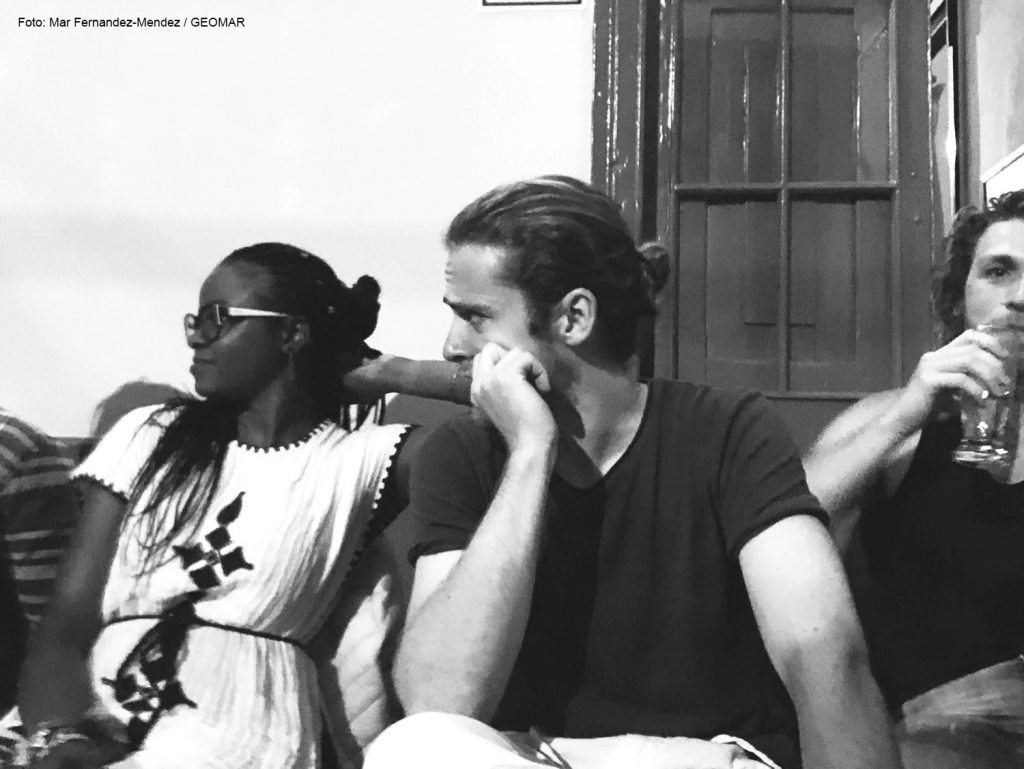
The lunch break is regularly being used for discussions and debates. The topics range from daily occurrences to scientific hypotheses.
But first of all: What does ocean research mean? The task of the GEOMAR Institute is to study the chemical, physical, biological and geological processes in the ocean. Above all, the interaction of these processes with the seafloor and the atmosphere is researched. The Institute for Baltic Sea Research is mainly dedicated to interdisciplinary marine research in coastal and marginal seas.
To summarize: from the smallest chemical substances to large animals, from the seafloor and deep sea to the uppermost water layer, from individual aspects to the connections on the highest level – all this is studied in ocean research. Ultimately, the knowledge gained serves our insights into the climate crisis and the role the ocean plays or will play in it.
And now back to the lunch table. Why was there such an intense discussion here in the first place? “People usually don’t do that,” I thought. “Can’t everyone evaluate their own data, buy just whichever kind of pasta and that’s it?”
But I quickly learned: science consists of advancing ideas, questioning and interpreting data, and regularly exchanging ideas with other researchers in the field. Scientific discourse is the basis for well-connected and excellent research. And since my colleagues in ocean research are scientists with heart and soul and live and love this discourse, it doesn’t stop at lunch time or after the research topics are finished.
I had had a stereotype of people in science in my head before starting the job – no-nonsense individuals, living in their own data world, disconnected from reality. And now, perhaps in an unexpected way, the exact opposite was true. Once it was clarified whether and how certain data points in the experiment would be included, it became about these very everyday issues. About finding apartments, about going out together (if Corona allows it) or about the already mentioned question about the right noodle. And this question, which noodle was the best to eat and why, was taken just as seriously, just as critically scrutinized and discussed as the oceanic research data before. It became clear to me in this situation: good research seems to be about more than just good data. There is another connection – a human one. Science seems to act as social glue on the one hand, and it seems to need it on the other.
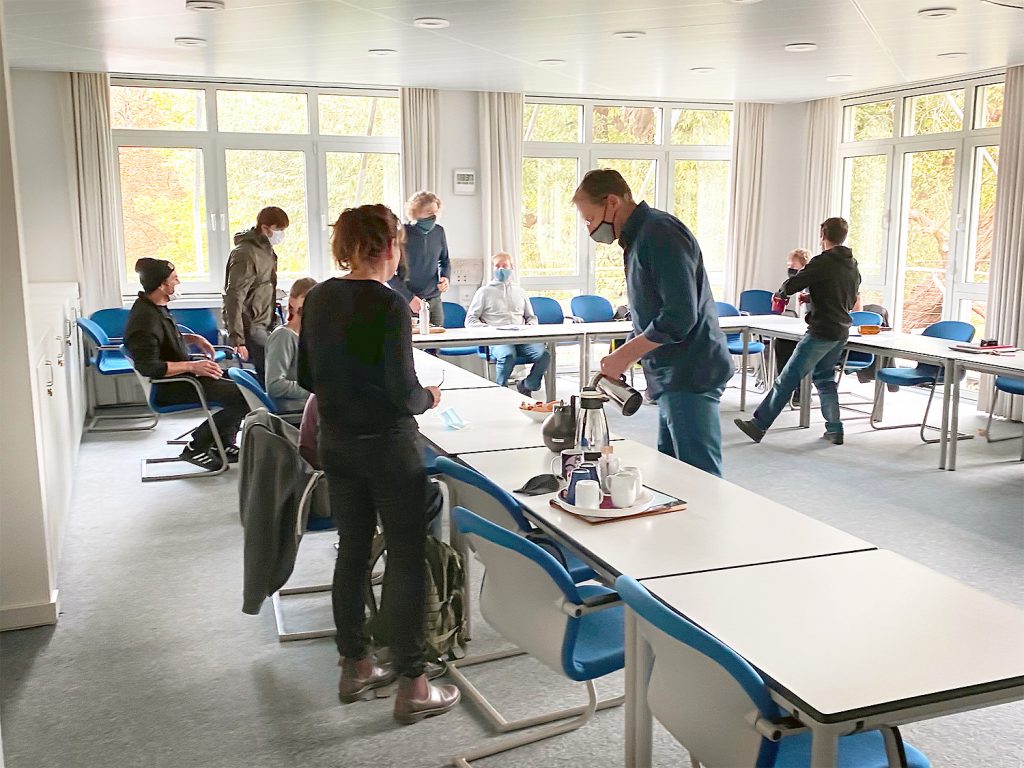
Scientists in ocean research have to network a lot to be able to do a good job. But the human connection between them often exceeds the mere work status.
Was this social aspect part of the daily motivation? I tried to understand what motivates young scientists to become the backbone of oceanic research. My first impression was: a burning curiosity about everything that can be discovered. I have seen this before, in very young people who walk through the world in wonder every day. So are scientists basically eternal children?
There is certainly some truth in this prejudice. Who else should get to the bottom of the secrets of this world in small-scale, complex and elaborate studies, if not people who have retained their curiosity? However, there is also something very adult in this kind of curiosity. The scientific curiosity I encounter every day is purposeful. It is focused over years and must have both stamina and be able to deal with setbacks – many setbacks.
‘Cause that’s another reality of the scientific world – the pressure to perform is high, the hours are long. And if something happens, say a pandemic, that makes research expeditions impossible, there can suddenly be serious problems with data. Then scientists have to deal with frustration and fear for their own research and future. Science is driven by individuals who immerse themselves in specific questions with sustained passion over many years and face all these challenges. Who constantly question knowledge that already seems set or self-evident, even in the seemingly trivial choice of pasta. And yes, social networking is an important support and a strong motivator in this.
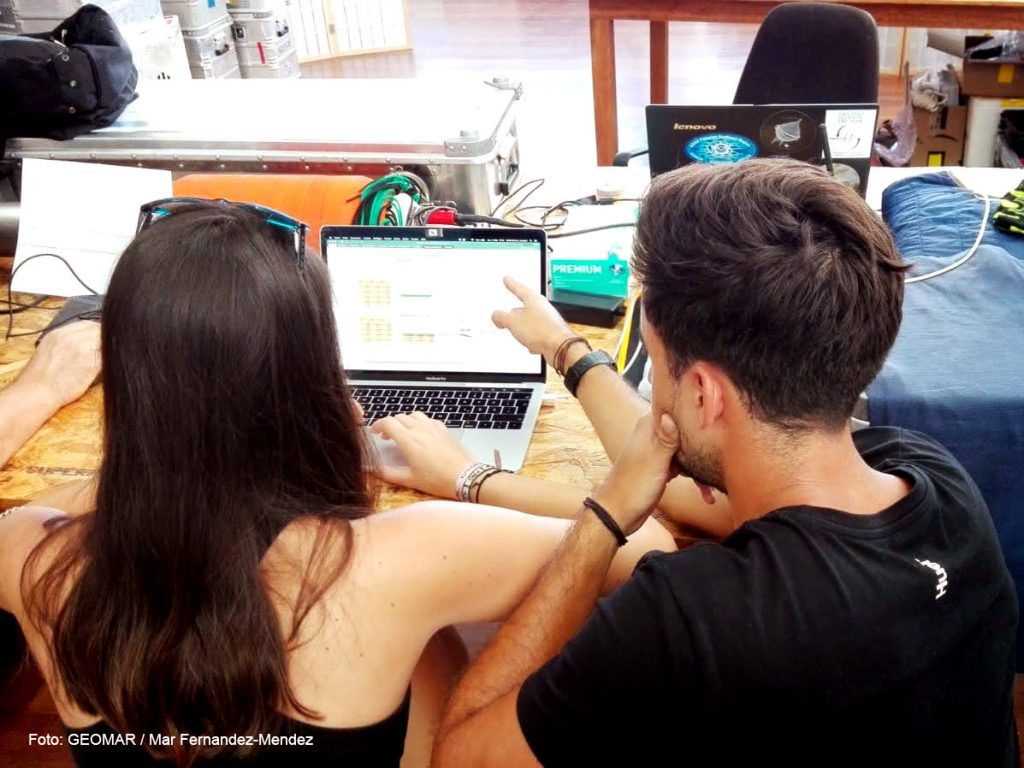
Regular communication in science ensures that ideas are being developed and data is being examined and discussed.
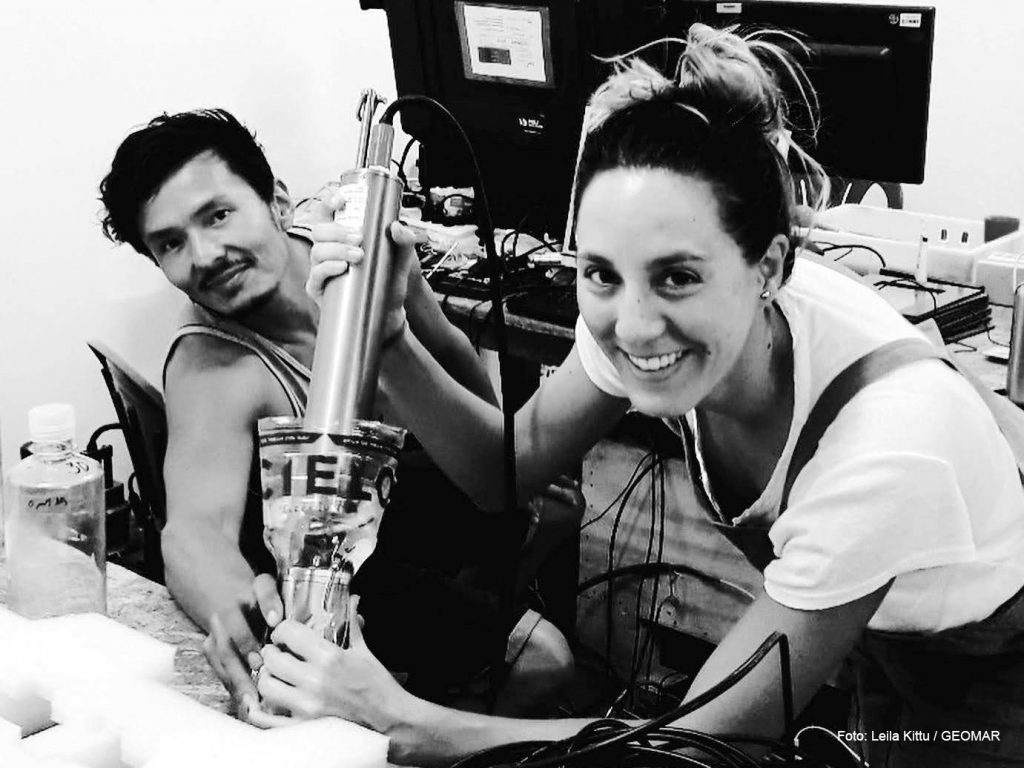
Science binds together. Ocean research acts as social glue.
After my first weeks among scientists, I realize that science is not as distant as I thought. It connects! It connects people with each other, but also seemingly unrelated topics like ocean research and noodles. I learn that being a scientist is as much about work as it is about everyday life. That the qualities that make a good researcher don’t just stop being there after work. And above all, that my stereotypes about science and the people in it may be true in some aspects, but are basically in need of a major overhaul. By the way, regarding the extensively discussed question about the right noodle: There was no clear winner. Because that too is part of science – not always having a clear answer to everything right away.
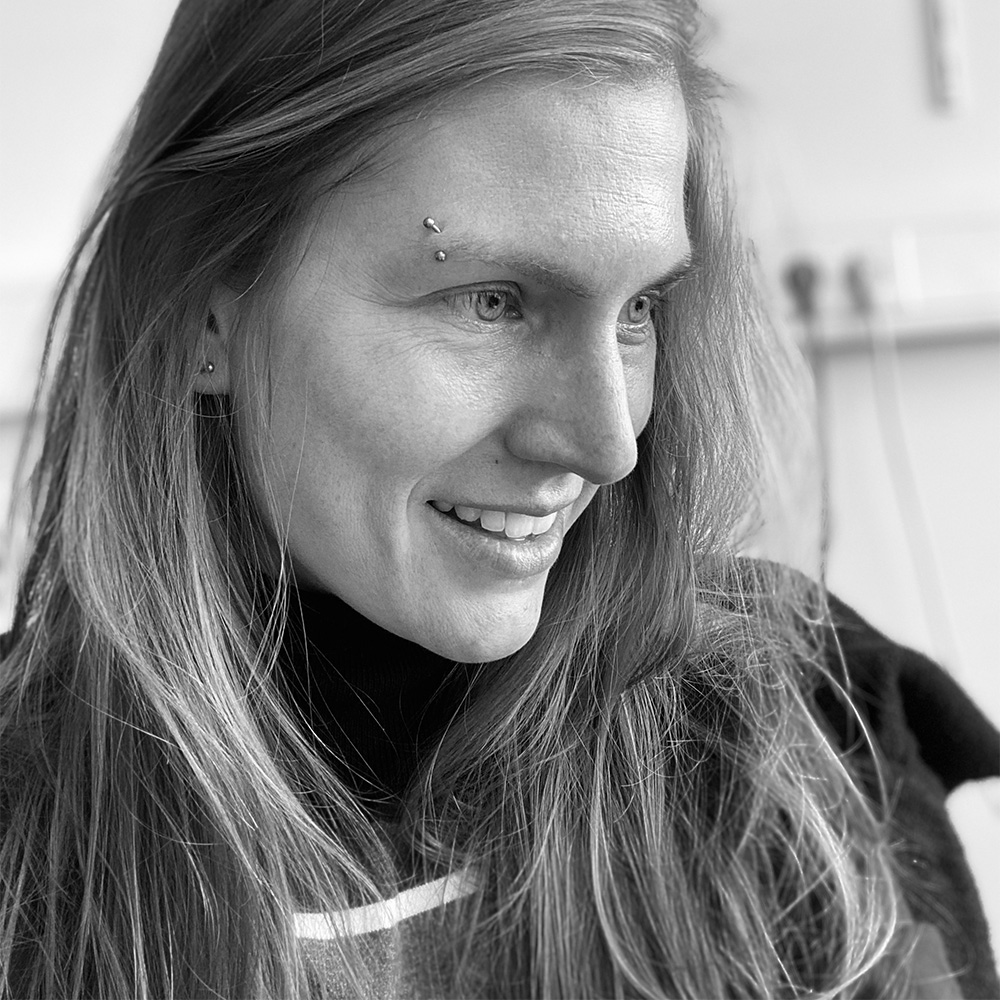
Author: Ann Kristin Montano
Former scientist who worked long enough in other fields to build up stereotypes about scientists. Now enjoys working among scientists to break down the stereotypes. Has also started her own culinary experiment at home with pasta. Won’t write about it here, but will regularly write about ocean research and the people behind it.